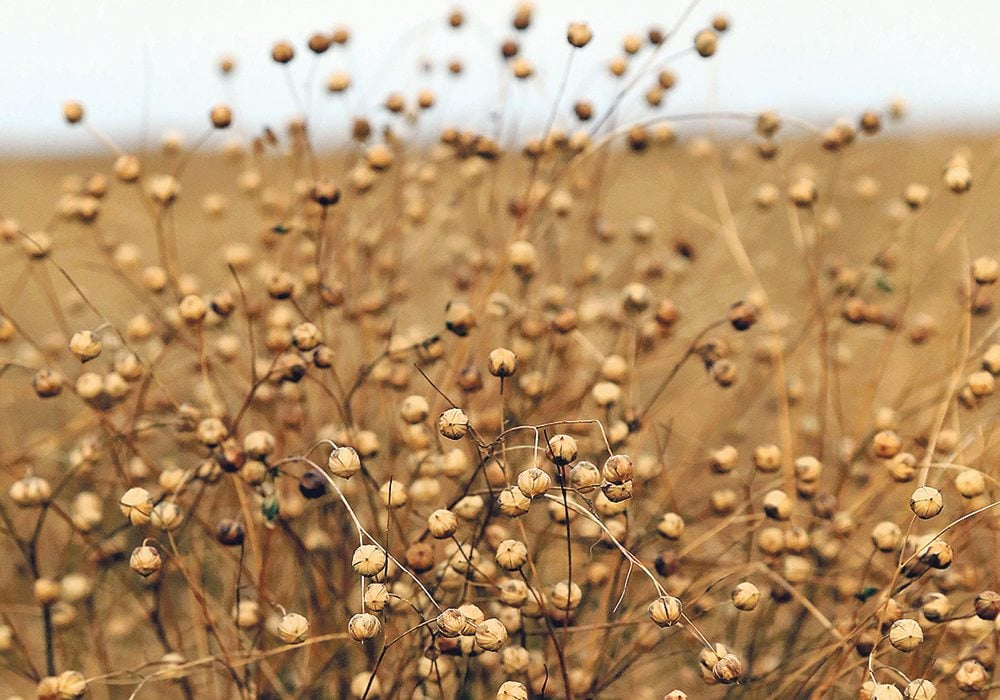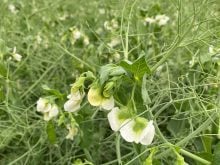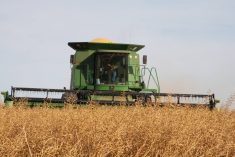SASKATOON — New European Union tariffs on grain from Russia and Belarus could create opportunities for Canadian exporters.
“For the period of application of this regulation, which is undetermined, this certainly opens new export opportunities, including for Canadian producers,” Olof Gill, spokesperson for trade and agriculture with the European Commission, said in an email.
Related stories:
He added that the Canada-European Union Comprehensive Economic and Trade Agreement gives Canada a competitive advantage for products covered by that agreement.
Read Also

Crop quality looks good this year across Prairies
Crop quality looks real good this year, with the exception of durum.
“(It) places Canada in a better position than other EU suppliers,” said Gill.
Russia exported 4.2 million tonnes of cereals, oilseeds and derived products to the EU in 2023 worth 1.3 billion euros ($1.93 billion). Belarus shipped another 610,000 tonnes valued at 246 million euros ($366 million).
Together they accounted for about 6.3 percent of the EU’s total grains and oilseeds imports that year.
The new measures were put in place to prevent destabilization of the EU’s grain market, halt Russian exports of illegally appropriated Ukrainian grain and prevent Russia from funding its war with Ukraine through the sale of grain to the EU.
Brennan Turner, an independent grain market analyst, said the new duties are good news for growers and exporters of some of Canada’s minor crops.
Russia’s 2023 exports included 892,482 tonnes of peas, 465,299 tonnes of durum, 400,668 tonnes of flax and 48,551 tonnes of mustard.
Those products will now be subject to an import duty of either 50 percent or 95 euros ($141) per tonne starting July 1.
Turner does not think it will have much impact on Canada’s major crops. Russia shipped 352,894 tonnes of wheat and a mere 5,177 tonnes of canola to the EU in 2023.
“Russia is the wheat export king, but their products are mostly going to Asian markets, African markets and Middle Eastern markets,” said Turner.
The EU tends to import high quality, high protein wheat from suppliers like Canada.
Mercantile Consulting Venture believes the EU’s new duties could direct more demand toward Canada’s high protein wheat and durum.
“But this could be limited as Russian wheat may be able to reach the EU by being re-exported from Turkey or Kazakhstan,” the firm stated in a recent market outlook penned for the Saskatchewan Wheat Development Commission.
MarketsFarm analyst Bruce Burnett said the new duties are a positive development for Canadian farmers and exporters, especially for some of the minor crops.
“We will get some business out of this,” he said.
Canada used to ship a lot more peas, flax, durum and mustard to Europe.
“Over the past number of years (exports) have declined as the Russians and Ukrainians have taken a larger market share from us,” said Burnett. “We sort of got squeezed out.”
That forced Canada to seek alternative markets in Asia. This is an opportunity to reclaim some lost turf in the EU.
Russia has also been a large exporter of sunflower seeds and oil to the EU in some years. Burnett said that could benefit Canada’s canola growers as crushers in the EU might switch to crushing more rapeseed/canola.
He noted Canada won’t be the only country benefiting from Russia’s exit from the EU. Exports from Ukraine and Kazakhstan are likely to grow as well due to their proximity to that market.
Turner agrees with that assessment.
“The most available option is going to be Ukraine,” he said. “Ukraine is right there.”
And Ukraine grows many of the same crops Canada will try to sell to the EU, such as canola, flax, peas and mustard.
In January, the European Commission renewed its suspension of import duties and quotas on all Ukrainian exports for another year.
The EC’s Autonomous Trade Measures have been in place since June 2022.
Burnett also noted Russia could start competing more vigorously with Canada in Asian markets as it attempts to find new homes for what it used to ship to the EU.
“This is certainly a Rubik’s Cube kind of thing,” he said.
















